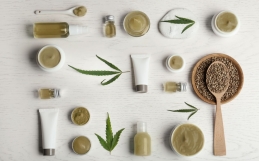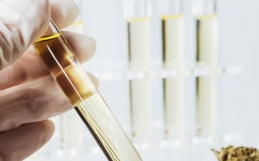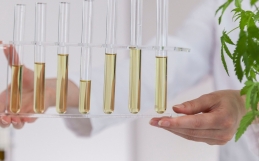Everything we do at MyDx is aimed to keep consumers safe. Whether it is with the upcoming OrganaDx to test your foods for chemicals and pesticides or the CannaDx, the state-of-the-art cannabis strain analyzer.
We want you safe and healthy and able to consume and ingest things knowing you are getting exactly what you are looking for and expecting.
When it comes to cannabis unless you’ve invested in the CannaDx, how can you be sure your product is safe?
There were recently two voluntary product recalls, so we are going to dive into those and then discuss the new California rules and practices which are being put into place to ensure consumer safety.
Two Recent Recalls
Zach Eisenberg, vice president at San Francisco-based Anresco Laboratories, which is one of the independent labs involved in testing one of the recalled products, told Marijuana Business Daily, “Recalls at this stage … are more due to a misunderstanding of the regulations right now… The two July recalls were outliers amid thousands of MJ products that have been tested, passed and subsequently sent to retailers.”
Eisenberg went on to discuss how the chances of a recall are getting smaller and smaller as the process of testing and double-checking results of the lab tests by the Bureau of Cannabis Control gets more streamlined and secure, especially as more regulations are being put into place and understood better.
On the two product recalls, Marijuana Business Daily reports “Details surrounding the recalls remain murky. BCC spokesman Alex Traverso said the agency is still investigating the circumstances involving both companies, which voluntarily announced their products had failed testing and somehow made it to retail shelves.”
Three independent labs involved in testing all say, that the two recent product recalls are mostly an indication of systemic flaws, which new regulations must address and which distributors cannot be allowed to attempt to avoid.
Safety & Regulations
So, what is being done to prevent recalls and keep the cannabis products safe for users?
First, all licensed distributors are required to have all of their products tested by independent laboratories and each individual product must get a passing grade from the labs before they get sent to any retailers or clients.
This means the supply chain itself acts as a quality control function.
In addition, manufacturers are required to label all of the products, such as edibles and concentrates, with percentages of cannabinoids before the products can be sent on to the distributors and retailers. The Bureau of Cannabis Control requires all labeled percentages to be within 10 percent of the actual testing results from lab testing. If they are not within 10 percent of each other, the product must be taken and relabeled prior to distribution and sale.
Marijuana Business Daily explains how this rule can be frustrating and says, “California has no universal testing standards or methods, meaning testing practices often differ among the state’s 33 licensed labs.”
Soon, California’s Metrc track-and-trace system will be running, which in addition to the ongoing regulations being put into place and the eyes of the Bureau of Cannabis Control on the watch, will be extremely helpful in lowering the risk of additional recalls in the future.
According to the Metrc website:
California has selected Metrc as the state’s track-and-trace system used to track commercial cannabis activity and movement across the distribution chain (“seed-to-sale”). This site is intended to give annual licensees information that will help them use Metrc to remain in compliance with California’s tracking and reporting requirements. More information will be added to this page during California’s transition to Metrc and on an on-going basis as needed.
For information on California’s programs – including regulatory requirements – visit the following websites:
- Bureau of Cannabis Control – a bureau within the California Department of Consumer Affairs, BCC is responsible for licensing retailers, distributors, testing laboratories and microbusinesses.
- CalCannabis Cultivation Licensing – a division within the California Department of Food & Agriculture, CalCannabis is responsible for licensing cultivators (including nurseries and processors) and implementing the state’s Track-and-Trace system to record the movement of cannabis from seed to sale.
- Manufactured Cannabis Safety Branch – a branch within the California Department of Public Health, MCSB is responsible for licensing manufacturers of cannabis products. This includes nearly all non-flower products (edibles, concentrate, tinctures, etc.)
All of this shows how important safety and knowing what is in your cannabis products is important! Learn more about the CannaDx here.






